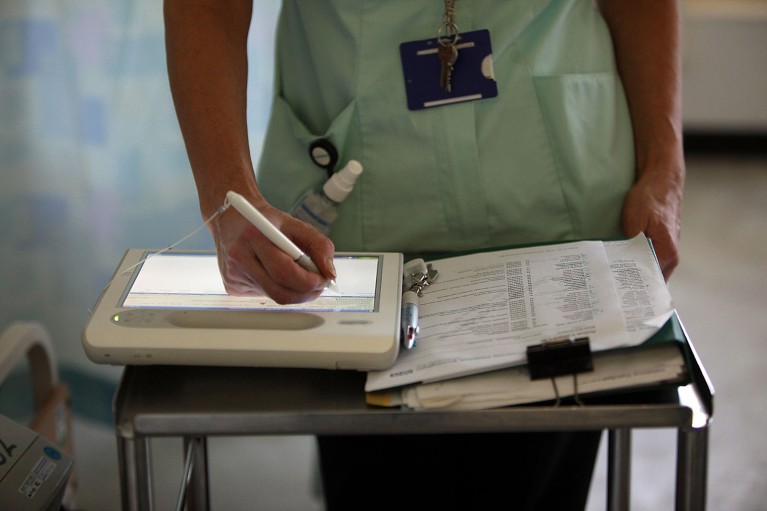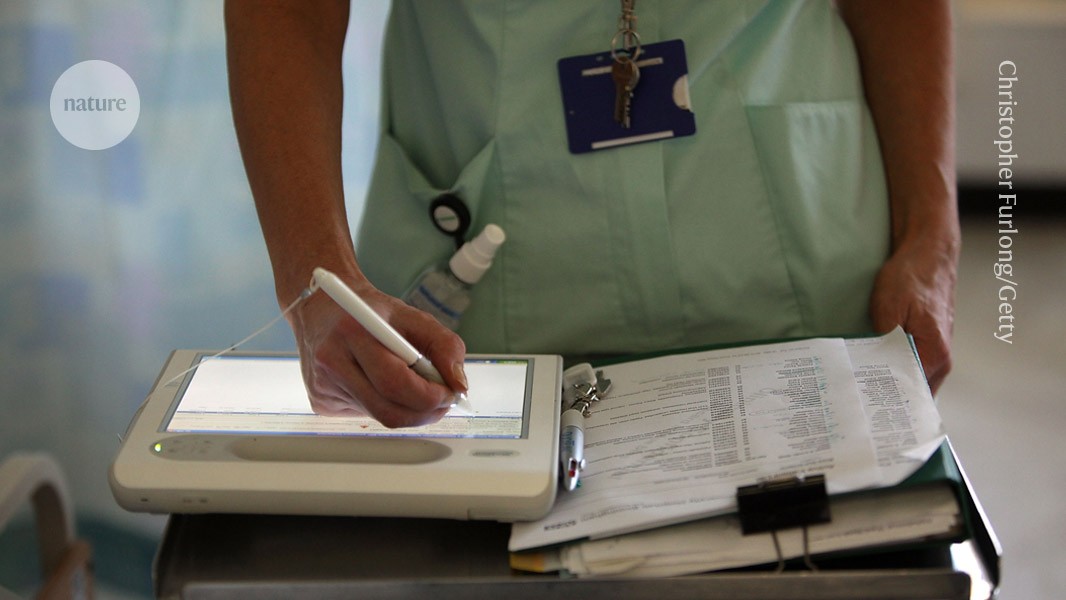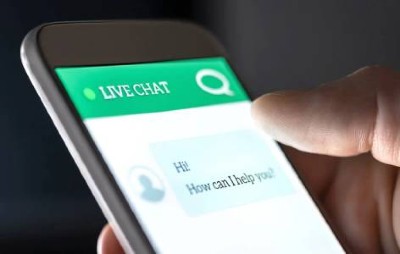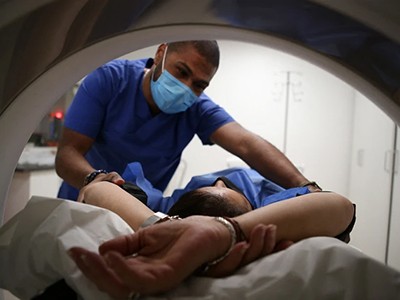
Patients’ medical records are a rich source of data for AI models.Credit: Christopher Furlong/Getty
A generative artificial-intelligence (AI) model has been let loose on an entire nation’s health records for the first time.
The model, called Foresight, predicts hospitalizations, heart attacks and hundreds of other conditions, and researchers trained it on deidentified data from 57 million patients in England’s National Health Service (NHS).
Google AI has better bedside manner than human doctors — and makes better diagnoses
Foresight can currently be used only for research related to COVID-19, which must be done in a secure ‘data environment’ operated by the NHS.
But if the AI’s predictions prove valuable in diverse populations, Foresight could eventually guide individual patient care and help apportion NHS resources, Angela Wood, a health-data scientist at the University of Cambridge, UK, said at a press briefing on 6 May. “This is the first time an AI model has been used within health research on 57 million people. This is a real step forward,” she added.
The development comes as AI is increasingly being integrated into medical research through models that diagnose diseases and perform other medical tasks — in some cases better than humans.
Future diagnoses
A previous iteration of the Foresight was trained on health records from around 1.5 million people in London and tested on its ability to determine future diagnoses when presented with a patients’ medical history1 and made correct judgements most of the time.
How AI is helping to boost cancer screening
The model is based on several data sources, including hospital and vaccination records, general practitioners’ (GP) visits and a UK national death registry. The latest version was trained on data from 2018 to 2023, totalling around 10 billion medical ‘events’.
These data were stripped of identifying information, such as names, addresses and birthdates. As added precautions, the model can be run only on NHS computer systems, and any research predictions it generates will be screened before release, Michael Chapman, the director of data access at NHS England, said at the briefing.
The NHS allows individuals to request that GP records not be used for research or planning, but people cannot withdraw other types of health data from the model, Chapman added.




